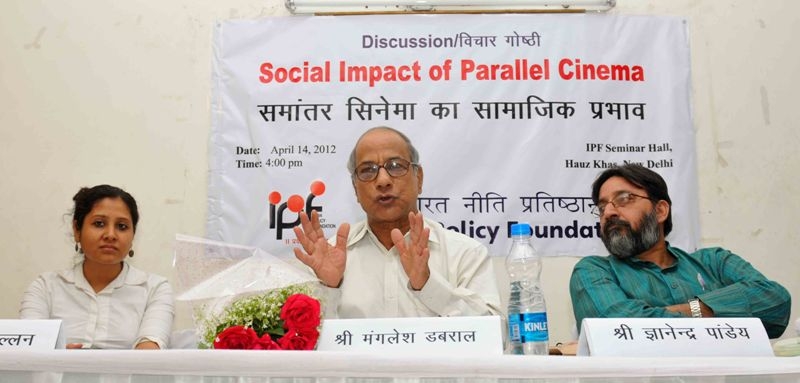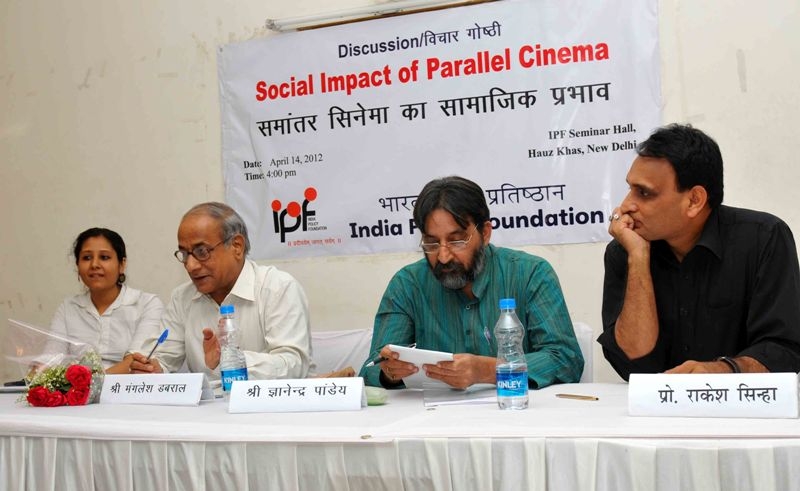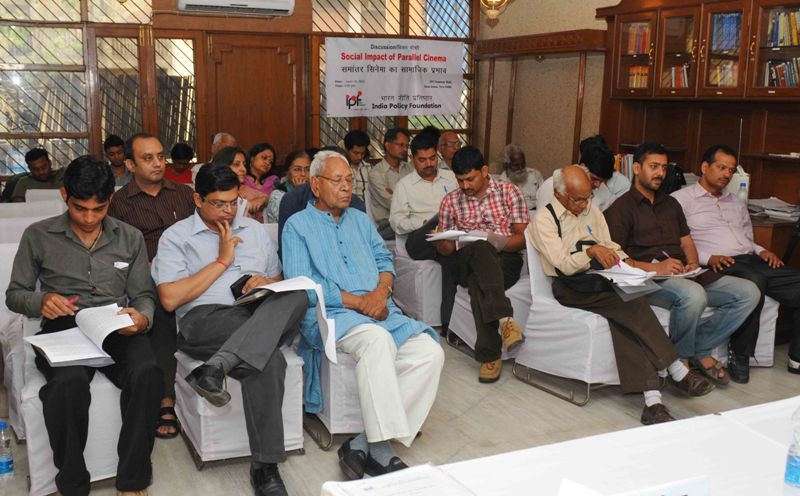Social Impact of Parallel Cinema
Total Views |

April 14, 2012, IPF Conference Hall
Chaired by: Shri Manglesh Dabral, The Editor of the Public Agenda
He said that the commercial (Bollywood) cinema is nothing more than imitation of Hollywood and far from the social realities. They are primarily based on sex and violence. In his note he said that the emergency era was a turning point for Indian cinema when it abandoned the idealism and hope of the Nehruvian era. The emergency witnessed the emergence of extra constitutional authority and late Sanjay Gandhi symbolised it. he drew a parallel with the emergence of Amitabh Bachhan as young angry man. He argued that most of the cinema which have been made since 70′s also reflected extra constitutional methods to change the system. He called it as unrealistic. He criticized the government for not acknowledging the huge potential of parallel cinema and providing them even minimum support.
Author and activist Ms Pooja Khillan presented her well researched paper.Tracing the history of Indian cinema and making a comparison with its Western counterpart , she argued that the fundamental difference between commercial and parallel cinema is determined by their respective concerns. While commercial cinema’s object is to entertain its audience, parallel cinema is intended to initiate a process of transformation at micro and macro levels. So, we found that parallel cinema was a sensitive movement of the cinema revolution which had a widespread impact but non-progressive and backward looking people or viewers did not like it much. Those viewers wanted to solve the problem immediately were attracted towards popular cinema as it gave them satisfaction while progressive thinking was different. The film Manthan made in 1976 realizes the strength of collectivism, which was made with the help of president National Dairy Cooperation V Kurian.

Bhavni Bhavai film is screened in Gujarati milieu and the folk tale is depicted in an interesting and credible fashion. The story of Bhavni Bhavai film is original and based on contemporary social and political scenario when there was a severe drought in the north India and during that time in Ahmedabad {1970-80} there were caste-based killings. All these things were given the shape of a folk story and the story was built in the form of social satire in Bhavni Bhavai.
Ketan Mehta’s Mirch Masala is based on the exigencies of the patriarchal family. The film tries to expose the truth as well as the resistance that is reflected in the intentions of the character Mukhiyin played by Dipti Nawal who decides to send her daughter to school against the wishes of her family. She questions her husband after he is out of home for the entire night. She unites women of village against the decision of sending Sonbai to Subedar. So this film is about women empowerment based on a folk tale.
Gyanendra Pandey, Editor, Lok Sabha Channel, while delivering vote of thanks , said that the market lobby does not allow parallel cinema to make their space. Prof Rakesh Sinha , Hony Director, introducing the subject , said that although the primary objective of IPF is to intervene into policy issues , we are firm opinion that without reviving social values, concern through literary and cultural movement we cannot create propitious ground for pro people policy formulation and implementation. He raised the question “can a society achieve stability and equilibrium without literature, art, cinema?” he said that they are tools to create sensitivity among citizens. In the post liberalisation phase the market forces have made a negative impact on social sciences/ humanities. It is therefore duty of think tanks to initiate debate on emerging situation in the field of art, literature and culture.

The seminar was attended by a large number of research scholars, journalists and educationists which included Sh Deenanath Batra, an eminent educationist and social activist, Sh Anil Pandey, the executive editor of the Sunday Indian, Ms Renu Kaul, CEO of Vitasta Publication,Prof AP Singh, National Law University, Sh Manmohan Sharma, sr Fellow IPF, Vinod Shukla, sr journalist Sahara Time, Prof Harsha, Venketeshwar College, Univ.of Delhi, Dr Sudhanshu Trivedi, educationist and political activist, Sh Gopal Agarwal, economic thinker and convener of Jaladhikar,Dinbandhu Singh.